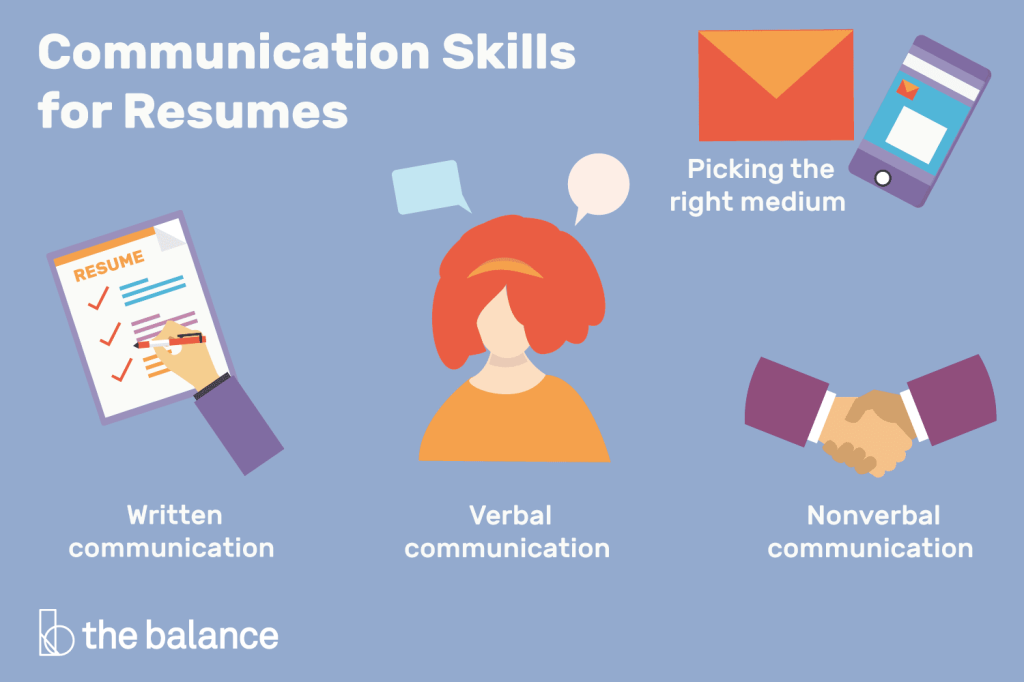Master The Art Of Communication: Unveiling The Secrets To Demonstrating Excellent Verbal And Written Skills!
How Do You Demonstrate Excellent Verbal and Written Communication Skills
Introduction
Welcome, Smart Readers, to this informative article on how to demonstrate excellent verbal and written communication skills. In today’s fast-paced and interconnected world, effective communication is crucial in both personal and professional settings. Whether you are conveying your ideas in a business meeting, writing a persuasive email, or engaging in a conversation, being able to communicate clearly and confidently can greatly impact your success. In this article, we will explore various strategies and tips to help you showcase your proficiency in verbal and written communication.
1 Picture Gallery: Master The Art Of Communication: Unveiling The Secrets To Demonstrating Excellent Verbal And Written Skills!

What Are Verbal and Written Communication Skills?
Verbal communication refers to the ability to express thoughts and ideas through spoken words. It encompasses various aspects, such as clarity, pronunciation, tone, and body language. On the other hand, written communication involves conveying information through written words, including emails, reports, letters, and presentations. Both verbal and written communication skills are essential for effective and efficient communication.
Who Needs Excellent Verbal and Written Communication Skills?

Image Source: thebalancemoney.com
Excellent verbal and written communication skills are valuable for individuals in all walks of life. Whether you are a student, a professional, an entrepreneur, or even a homemaker, the ability to communicate effectively can enhance your relationships, improve your career prospects, and increase your influence. These skills are particularly crucial for individuals in roles that involve frequent interactions with others, such as salespeople, customer service representatives, managers, and leaders.
When Should You Demonstrate Excellent Verbal and Written Communication Skills?
Opportunities to showcase your verbal and written communication skills arise in various situations and settings. Job interviews, client meetings, presentations, negotiations, team collaborations, and written correspondences are some common scenarios where effective communication skills are required. It is important to consistently demonstrate these skills in both formal and informal settings to establish yourself as a competent communicator.
Where Can You Demonstrate Excellent Verbal and Written Communication Skills?
Excellent verbal and written communication skills can be showcased in numerous environments. Whether it is in the workplace, educational institutions, social gatherings, or online platforms, the ability to communicate effectively can help you stand out and make a positive impression. With advancements in technology, the virtual space has become another important platform to display your communication skills through video conferences, webinars, emails, and social media interactions.
Why Are Excellent Verbal and Written Communication Skills Important?
Effective communication is the foundation of strong relationships, both personal and professional. It enables you to express your ideas clearly, understand others’ viewpoints, resolve conflicts, and build trust. By demonstrating excellent verbal and written communication skills, you can enhance your credibility, influence others, and contribute effectively to collaborative efforts. These skills also enable you to convey your thoughts persuasively, leading to better opportunities and success in various aspects of life.
How Can You Demonstrate Excellent Verbal and Written Communication Skills?
To demonstrate excellent verbal and written communication skills, there are several strategies you can adopt:
1. Practice active listening: Pay attention to the speaker, ask questions, and provide appropriate responses to demonstrate your understanding.
2. Use clear and concise language: Avoid jargon and unnecessary complexities to ensure your message is easily understood.
3. Maintain eye contact and confident body language: Displaying attentiveness and confidence through non-verbal cues can enhance your communication.
4. Tailor your communication style: Adapt your language, tone, and style based on the audience and the context of the communication.
5. Seek feedback and improve: Actively seek feedback from others to identify areas of improvement and work on enhancing your skills.
6. Write effectively: Use proper grammar, punctuation, and formatting in your written communication to convey your message clearly and professionally.
7. Be empathetic and considerate: Understand and acknowledge others’ perspectives, and communicate in a respectful and inclusive manner.
Advantages and Disadvantages of Excellent Verbal and Written Communication Skills
Advantages:
1. Increased career opportunities: Excellent communication skills are highly sought after by employers, leading to better job prospects and growth opportunities.
2. Enhanced relationships: Effective communication fosters stronger connections with colleagues, friends, and family, improving overall quality of life.
3. Improved productivity: Clear communication minimizes misunderstandings, leading to more efficient teamwork and task completion.
4. Increased confidence: Strong communication skills boost self-confidence and enable you to express yourself more effectively.
5. Better problem-solving: Clear communication facilitates the exchange of ideas and promotes collaborative problem-solving.
Disadvantages:
1. Misinterpretation: Despite efforts to communicate clearly, misunderstandings can still occur, leading to confusion or conflicts.
2. Overwhelming information: In certain situations, excessive communication can be overwhelming and hinder productivity.
3. Language barriers: Communication across different languages and cultures can present challenges and require additional effort to overcome.
4. Time-consuming: Communicating effectively may take more time and effort, especially when complex ideas need to be conveyed.
5. Emotional impact: Poor communication can lead to hurt feelings, damaged relationships, and negative consequences in personal and professional settings.
Frequently Asked Questions (FAQ)
Q1. How can I improve my verbal communication skills?
A1. You can improve your verbal communication skills by practicing active listening, using clear and concise language, and seeking feedback from others to identify areas of improvement.
Q2. What are some common barriers to effective written communication?
A2. Common barriers to effective written communication include poor grammar and spelling, lack of clarity, excessive use of technical jargon, and failure to consider the audience’s perspective.
Q3. Can excellent communication skills be learned?
A3. Yes, excellent communication skills can be learned and improved through practice, seeking feedback, and adopting effective communication strategies.
Q4. How can I overcome stage fright and confidently speak in public?
A4. Overcoming stage fright requires practice, preparation, and adopting relaxation techniques. You can also join public speaking courses or engage in activities that build your confidence in public speaking.
Q5. How can I improve my written communication skills?
A5. To improve your written communication skills, you can read extensively, practice writing regularly, seek feedback from others, and learn from well-written materials.
Conclusion
In conclusion, excellent verbal and written communication skills are essential in today’s interconnected world. By effectively conveying your thoughts and ideas, you can enhance your relationships, advance your career, and achieve success in various aspects of life. Remember to continuously practice and improve your communication skills, both verbally and in writing, to become a competent and influential communicator.
Final Remarks
Effective communication is a lifelong skill that can greatly benefit individuals in all walks of life. Developing excellent verbal and written communication skills requires continuous effort, practice, and a willingness to learn and adapt. By incorporating the strategies and tips mentioned in this article, you can demonstrate your proficiency in communication and unlock countless opportunities. Remember, communication is not only about speaking or writing; it also involves active listening and understanding others’ perspectives. Keep refining your communication skills, and you will undoubtedly reap the benefits in both your personal and professional life.
This post topic: Excellent
